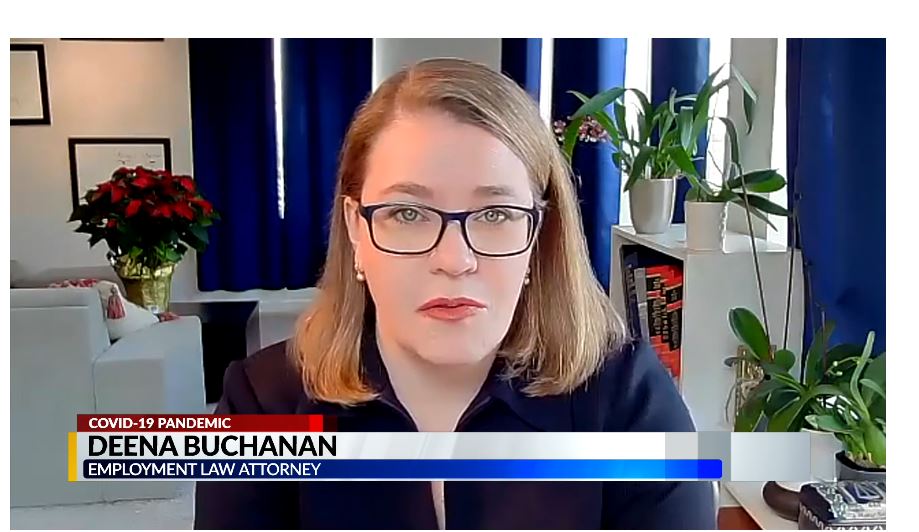New Mexico Employment Attorney Deena Buchanan
Gabrielle Burkhart: KRQE TV:
 “I would say maybe a third of all calls have something to do with COVID, if not more,” explained Deena Buchanan, Employment Law Attorney in Albuquerque.
“I would say maybe a third of all calls have something to do with COVID, if not more,” explained Deena Buchanan, Employment Law Attorney in Albuquerque.
Buchanan has been practicing law for more than 20 years. This year, fielding questions about COVID-19 is a huge part of her practice.
“It’s on the top of everyone’s mind right now,” said Buchanan.
ALBUQUERQUE, N.M. (KRQE) – With the promise of a COVID-19 vaccine on the horizon, Americans are still split on whether they’d get the shot. But can your employer require you to get it?
The short answer is probably, depending on what your job is, according to labor law attorneys. But this is all new territory for employers, workers, and attorneys, navigating what can and can’t be done in the pandemic.
There are questions around paid leave, quarantine, and worker’s comp. And as fast-tracked coronavirus vaccines inch closer to FDA approval, KRQE News 13 wanted to know how the vaccine might impact the workforce.
When asked whether employers can mandate their employees to get the coronavirus vaccine, Buchanan replied, “That’s a really great question, and I think the answer is – maybe, and maybe probably.”
“It’s also going to depend on what kind of work the person does, and what the circumstances of the employment are,” Buchanan added.
Whether a COVID-19 vaccine mandate will take effect in a workplace will likely depend on the job, and how much in-person interaction is required of employees.
Buchanan explained protections under the Americans with Disabilities Act that would normally prevent employers from questioning their workers about health conditions, don’t apply to COVID-19.
Employers can already require workers to wear masks, get tested, and do temperature checks.
“With COVID, the EEOC said, ‘OK, we’re in a public health emergency, so now COVID-related illnesses are a quote ‘direct threat to others,’ to the public, to other employees,” Buchanan explained.
The latest Gallup survey shows 58% of Americans would get a COVID-19 vaccine. And guidance from the U.S. Equal Employment Opportunity Commission is evolving.
Still, some cases are likely to play out in court, Buchanan said. “If an employee is being told by their doctor not to get a vaccine, and the employer is threatening them with termination if they don’t get a vaccine, it’s going to raise a lot of questions, and some problems I think,” she said.
Employers offering incentives for their employees to take the vaccine would be a good place to start, she said. “Maybe make it easy for them to get the vaccine, maybe offer to pay for the vaccine,” Buchanan said. “Include it as part of an employee wellness program or something like that, so it’s more of a positive thing than a forcing them and threatening them with their job.”
